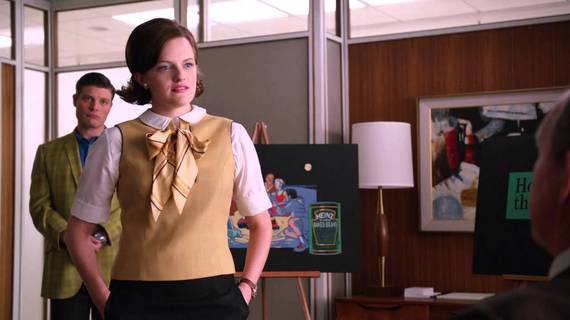As the President of an agency, it's my responsibility with the support of my management team to ensure that all voices and perspectives are represented in one form or another throughout our agency work and life. When there were a handful of us, it felt like a manageable task. But as our numbers continue to multiply, it becomes both more and more challenging and more and more critical. I'm learning as I go the only way I know how - through open dialogue and with ongoing, honest conversations with trusted colleagues.
One such colleague is Bizzy Coy who worked as a copywriter and strategist on my team for years before going off on her own to pursue her own writing. (Keep an eye out for her forthcoming novel. You do not want to miss it.)
Recently, she and I found ourselves deep in conversation about gender diversity in the workplace and the importance of recognizing which voices or perspectives might be marginalized in one's own backyard (read: office). What began as an informal chat with a colleague and consultant continued over several phone calls, and eventually a podcast episode. Finally, I decided to document a specific discussion with her about women pursuing careers in the advertising business.
Damian Bazadona (DB): Why should someone consider work in the advertising business?
Bizzy Coy (BC): Advertising is a great place for people with what I'm calling the "Creative Duality" - the ability to hold two conflicting mindsets at once and be comfortable with that discomfort. In advertising, you have to think outside the box and come up with crazy, new ideas, while operating under tight budget, schedule and strategy constraints. If you relish that kind of tension and thrive in it - advertising might be a thrilling career path for you. You're comfortable straddling the line between art and commerce, between the idea you love and the idea that will benefit the brand. That's the basic DNA of a quality creative.
DB: The single most important piece of advice you give to young women interested in the creative side of advertising?
BC: I love this question. Advertising needs more women at the table! My advice is: BE BOLD. Don't worry that you don't have the right degree or enough relevant experience. If everyone at an agency has the same degree and life experience and work background, the brainstorming room becomes an echo chamber. So bring your own unique voice to the room. Bring your background and your personal experiences. Bring your fearless creative energy. Don't be afraid. Dive in. Speak up.
DB: Why do you think young women specifically need this advice? And, what's your advice for me, as an employer, to help understand the path of women pursuing a career at my agency.
BC: I don't want to over-generalize, but I've witnessed men coming in with incredible confidence about their potential, and women who are self-deprecating about what they perceive to be their lack of experience. Confidence is so important to our industry. If you can't market yourself as a quality creative, how can an agency or a client expect you to market a product?
As an employer or a creative director, one small step to help combat this phenomenon is to simply ask women in the room: "What do you think?" And if you notice that women in the room aren't talking, ask yourself why. And if there are no women in the room, well, then you've got a problem.
DB: Earlier in the year, I wrote a piece about working in the entertainment business and we asked respondents, "True or false - the sky is the limit for your career." Over 65% of young men (under the age of 35) said they agree while just 40% of young women (under the age of 35) agreed. That's a pretty staggering confidence gap! Do you think this is the same for the advertising business?
BC: Possibly. There's a great quote from Broadway composer Jeanine Tesori's acceptance speech after she won the Tony Award for writing "Fun Home." She said: "For girls, you have to see it to be it. We stand on the shoulders of other women who have come before us." The idea being, how can young women be confident about their careers if they don't get to see viable examples of other women to look up to?
I'm embarrassed to admit that I wanted to get into the ad business after seeing Peggy be a bad-ass lady copywriter on Mad Men. But that was actually a huge deal for me. I never knew this career path even existed, and to see it represented on TV was incredibly eye-opening. I thought, I can do that. I want to do that. We need more visible examples of successful women in all career fields, including advertising, to show women what's possible and decrease that confidence gap.
DB: You have substantial experience writing amazing copy lines for clients. What's your favorite part of the job?
BC: I have so many favorite parts of the job, it's hard to choose! Probably the most important is the people. I'm a firm believer that it's not what you do, it's who you do it with.
But one thing I miss is pitching to clients. Client presentations are like big birthday parties . There's energy in the air, there's a room full of people waiting to hear your ideas, and everything hinges on the team bringing it home. Delicious!
DB: Because you're an amazing storyteller, please write the future life story of a superstar copywriter in the advertising business that we haven't yet met but soon will.
BC: This is hard because I believe there are so many different paths that future lady copywriters can take, and there is no one single story. But the story probably starts: "Once upon a time, there was a woman with big ideas who wasn't afraid to share them."
